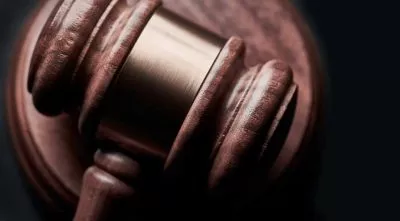
- Originally Published on March 31, 2018
Are Cheater Reporting Websites Legal & How Do They Affect My Reputation?
The Internet has evolved in such a hub that anything you can imagine is being discussed, written about, and disseminated. Because of such, there’s been an influx in malicious and defamatory online postings. Finding negative things published about yourself or a loved one (in any context) is extremely upsetting, and can be difficult to accept, especially when someone has posted about private details – such as sexual habits, past indiscretions, and other invasive information.
Popping up in alarming numbers of the years are cheater reporting websites, where malicious online trolls and posters gossip and report on a person’s infidelity, cheating, or other unsavory behavior (including the spread of sexually transmitted diseases). Although cheater sites were created with noble causes in mind, such as transparency and warning others of terrible experiences and relationships, their actual reality is so far off from their intended purpose.
The most serious problem is, most of the information posted is false, and a direct attack on innocent persons’ characters, ultimately jeopardizing their personal and professional reputation – especially when the information can be accessed by literally anyone, including:
- Family,
- Friends,
- Colleagues, &
- Future acquaintances.
Defamation of character is no joke, and should be taken very seriously. Even a small stone causes big ripples, ripples that are irreversible and lead to your ostracization from a community or profession.
Ohio Defamation Law Tip: Ohio’s statute of limitations for libel and slander claims is one (1) year. This means you have one year after the cause of action accrued to bring a defamation claim – also known as the date you discovered the injury.
Know that if you’ve been the victim of an online defamation of character attack, you shouldn’t have to live with it online, slowly eroding your reputation and happiness.
Act quickly, and reach out to the Cleveland-based defamation lawyers of Minc Law At Minc, LLC, we want to fight for your reputation and restore it to its original state. Put the fire out before it spreads, and call us today at (216) 373-7706 to schedule a free, initial no-obligation consultation with an intake specialist, or fill out our online contact form.
Child Porn & Revenge Porn & Posting Copyrighted Material
Before we discuss more nuanced issues of defamation law, it’s first important to look at the types of content which undoubtedly carry some level of restrictions or potential illegality.
- Child Pornography: First, the possession and distribution (posting) of child pornography is illegal in all 50 states and under United States federal law. While state definitions of what constitutes child pornography varies, the federal definition is extremely expansive and protective for minors. For example, even a drawing of an imaginary child engaged in a sexual act can create criminal liability.
- Revenge Porn: Revenge porn is the unconsented posting of private photos of a sexual nature, ultimately humiliating or embarrassing the party in the pictures. The United States is rather Draconian with its revenge porn laws, and currently, about 27 states have passed laws criminalizing revenge porn, and roughly 10 states have revenge porn legislation pending. It’s worth noting that Ohio does not currently have any revenge porn laws enacted. Revenge porn is often dealt with under other statutes and areas of law, and is not as comprehensive as child pornography laws. Furthermore, 9 states, including California, Florida, Pennsylvania, and Texas, allow victims of revenge porn to file a private lawsuit against the poster of the images. It should be no surprise with the strict child pornography laws in the U.S., that the posting or taking of photographs of underage individuals and posting them online are always illegal, and are not classified as revenge porn, but child pornography.
- Copyrighted Materials: Finally, images that are copyrighted, or where intellectual property rights are retained may not be infringed and used online without the author’s permission. If subject of intellectual property infringement, injured parties may file a DMCA takedown, as long as they hold the good-faith belief that the site is infringing on their protected work.
If you’ve been the victim of any of the above, it’s highly recommended you reach out to an experienced online revenge porn and defamation removal attorney to explain your options and formulate a strategic game-plan. Our team of Cleveland-based defamation and DMCA takedown attorneys have secured the swift and permanent takedown of countless illegal, defamatory, and malicious pictures, posts, and reports, so reach out today.
At Minc Law, we have a nearly 100% removal rate, all for a flat fee. We will work with you and explore all available options to remove the content as quickly as possible. Call us today at (216) 373-7706, or schedule a meeting online.
Defamation Removal Tip: When dealing with online defamation, especially cheater websites, it’s important you meticulously document everything. Taking screenshots of the defamatory and false content will help strengthen your claim. Additionally, it’s important to have the information screenshotted and preserved by a third-party, as to rule out any question of tampering.
Are User-Generated Content Platforms Legal?
Unfortunately, Cheater websites and other user-generated content platforms are legal, and enjoy broad immunity under Section 230 of a 1996 piece of legislation called ‘The Communications Decency Act’ (CDA).
Video: What is Section 230 of the Communications Decency Act?

Section 230 of the Communications Decency Act states:
No provider or user of an interactive computer service shall be treated as the publisher or speaker of any information provided by another information content provider.
Just as cable and telephone companies aren’t liable for malicious things said and discussed on their lines, user-generated content platforms are mere facilitators of content, not the creators.
Reputation Management Tip: Consistency is key when managing your online brand and reputation. Make sure whatever you do, do it consistently. Over time, results will add up, negative search results will be pushed down, and positive content will rise to the top. Make sure to set aside a specific amount of time per week to dedicate towards establishing your digital footprint.
As to why cheater reporting websites and other similar sites remain legal, is that one must take the bad that comes along with the good. In furtherance of democratizing the Internet and putting content creation in the hands of the everyday person, it comes with risks. Overstepping such boundaries and holding user-generated content platforms liable could lead to an unintended censoring of guaranteed rights.
Additionally, sites like Youtube, Facebook, Blogger, Twitter, Tumblr, and many others are all user-generated content platforms and exist and thrive off of the content, created by users. In a sense, cheater websites that rely on user-submitted content aren’t substantially different in form from the sites above, and should receive the same amount of protection – provided they engage in a good-faith, legal, and non-malicious manner.
When determining websites and online operators are subject to liability for online content, courts generally look to a three-prong test, where all elements must be satisfied:
- The party or entity is a “provider or user” of an “interactive computer service.”
- The party or entity is treated as the publisher or speaker in a lawsuit over the information, posting, or speech in question.
- The information must have come from another source and the site or entity must not be the source of the information.
In simple terms, as long as the interactive internet website or forum has not actually created or edited the content posted by contributors and users, then they cannot be held liable.
A Landmark Case Affirming Website Immunity
Website immunity under the CDA has been historically upheld by the courts, with one of the most notable cases being the 1997 case of Zeran v. AOL. The facts of the case appear right after the 1995 Oklahoma City bombing, and concern the posting of the plaintiff’s personal information and threatening/mocking slogans of the tragedy on an AOL bulletin board.
Ultimately, the court held that Section 230 of the Communications Decency Act “creates a federal immunity to any cause of action that would make service providers liable for information originating with a third-party user of the service.”
Zeran set the modern day precedent for the liability model courts follow today, resulting in the existence and continued presence of user-online generated content platforms and their legality – including cheater websites.
It’s important to note that while the CDA protects websites and website operators, it does not however protect the individuals who post defamatory and libelous online content.
Who Can I Hold Liable For False Posts on a Cheater Website?
Simply put, if you’ve had your character and reputation defamed online, you can hold the party who posted such information liable. However, it can be an arduous and tedious process to locate the poster, so it’s important to work with an experienced online defamation removal attorney.
At Minc Law, we know how to locate malicious online trolls and posters, and will employ all available tactics, such as:
- Sending a cease and desist,
- Reaching out to Google and other search engines,
- Subpoenaing their ISP address, &
- Negotiating and working with network and website administrators, content managers, and third-party arbitration services.
And, if necessary, we will work towards securing a valid court-ordered removal.
At Minc Law, we’ve successfully removed defamatory online material from countless online cheater websites. Below is a table of some of the websites we’ve engaged and secured permanent removals from.
| CheaterLand.com | On CheaterLand, users are encouraged to report both cheaters and liars, and allows for the upload of supporting photos. |
| CheaterCollege.com | Billing itself as a site to report “cheaters from every college and university,” CheaterCollege extends much further, and includes persons of all backgrounds, education levels, and locations. |
| CheatersRUs.com | Also commonly referred to as CheatersRUs.com, CheatersRUs is a common platform for jealous, angry, and disgruntled lovers to post lewd personal pictures and sort persons by state. |
| CheaterReport.com | Endorsing itself as the “number one online site to report cheaters and lookup cheater reporters,” CheaterReport’s reach goes beyond the U.S., and includes countries such as New Zealand, Canada, China, and Japan (to name a few.) |
| CheatersCatcher.com | A well known site for false posts about past boyfriends, girlfriends, husbands, and wives, putting them on blast for past indiscretions and warning others. |
| CheaterRegistry.com | A site boasting anonymous and pseudo-anonymous reports by exes, spouses, and other aggrieved lovers. |
| ReportMyEx.com | Boasting accusations centered around infidelity, theft, the transmission of sexual diseases, and other illegal behavior, ReportMyEx poses a serious threat to your reputation. |
| PredatorsAlerts.com | Formerly known as ExposingJohns.com, PredatorsAlerts primarily targets cheating men who have solicited escorts, prostitutes, and attempted to groom minors. |
| ShesAHomeWrecker.com | Partnered with HesAHomeWrecker.com, both are two popular online platforms for shaming, exposing, and posting about lovers, spouses, and exes who were unfaithful. |
Whether the site you are looking for is on the list or not, we will work to secure its removal. At Minc Law, we have a nearly 100% removal rate, and all for a flat reasonable fee. We leave no stone unturned, know who to contact, and how to contact them, so reach out today.
To schedule an initial, no-obligation consultation with an intake specialist, call us at (216) 373-7706, or schedule a meeting online today.
Work With an Experienced Defamation Removal Attorney to Remove Your Name From a Cheater Website
If you’ve been defamed and maliciously attacked on an online cheater shaming website, you don’t have to live with the abuse, ridicule, and embarrassment. Leaving it online stands to severely impact your personal and professional life, so act now!
Work with the experienced online defamation removal attorneys at Minc Law. At Minc Law, here’s what you can expect when working with Aaron and his team.
- Websites and platforms respond to Aaron & his team: At Minc Law, we know who to contact, and how to contact them. We’ve removed hundreds of posts from online sites, litigated in 19 states, and 3 countries, all with a near 100% removal rate. Additionally, we explore all available options to make sure you secure a swift and permanent removal.
- You’ll be treated with respect & courtesy: Confronting online defamation can be an overwhelming and stressful process, so know that we are here to put your best interests at first and are always on your side.
- We’re here to work with you: We will stay in constant contact you throughout the entire removal process, ensuring that you’re informed and aware of your options.
Call us today to get a free case review. The reputation repair lawyers of Minc Law will strive to hold the malicious poster liable and bring you one step closer towards feeling safe. You can reach us at (216) 373-7706 or through the contact form below.
Get Your Free Case Review
Fill out the form below, and our team will review your information to discuss the best options for your situation.
This page has been peer-reviewed, fact-checked, and edited by qualified attorneys to ensure substantive accuracy and coverage.


